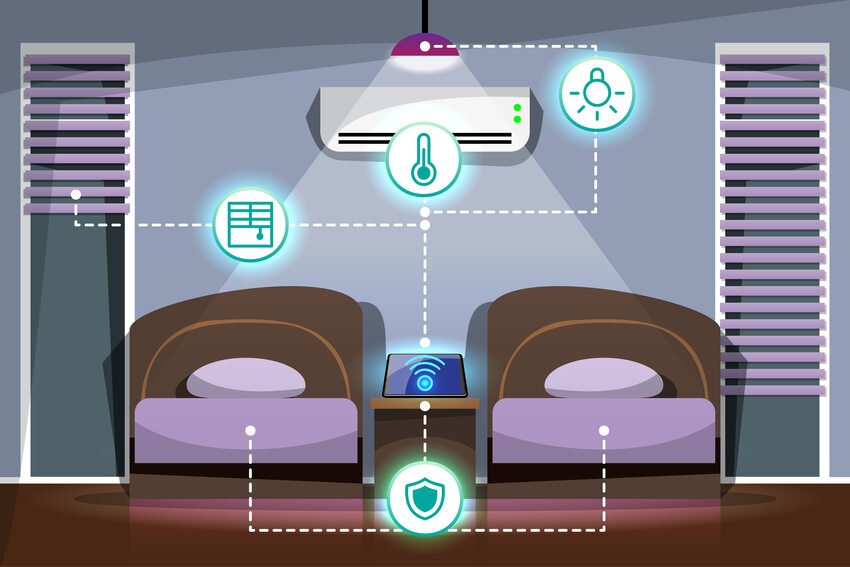If you find yourself waking up with itchy bites or restless nights, household pests could be the cause, disrupting your sleep. Common culprits, such as bed bugs, fleas, and mosquitoes, are often active at night, feeding while you rest. These pests not only cause discomfort but can also lead to ongoing sleep problems if left unaddressed.
Your bedroom can become a hidden habitat for these nocturnal invaders, especially in mattresses, bed frames, and bedding. Even pests like dust mites contribute to irritation that affects your ability to sleep well. Knowing how to identify and manage these pests is crucial for protecting your health and ensuring restful nights.
Sleeping peacefully means more than just comfort—it involves preventing pests that seek refuge in your sleeping area. From using mattress encasements to proper cleaning methods, you can reduce the risk of these pests ruining your sleep and regain control over your nightly rest.
Understanding How Household Pests Ruin Sleep
Pests can cause more than just physical discomfort; they actively interfere with your ability to rest by creating an environment of disturbance and anxiety. Recognizing which pests are most disruptive, how they interfere with your sleep cycles, and their typical behaviors at night helps you take targeted steps to protect your rest.
Common Sleep Disrupting Pests
Bed bugs, mosquitoes, and rodents are among the most frequent household pests that cause sleep disruptions. Bed bugs feed on your blood while you sleep, leading to itching, irritation, and discomfort that can wake you up. Mosquito bites produce similar irritation and noise, which can increase restlessness. Rodents amplify problems by generating sounds and movements that can startle you at night.
Other pests, such as dust mites, don’t bite but can trigger allergic reactions, causing congestion and sneezing that interfere with sleep quality. Your bedroom often becomes a hotspot for these pests, making it essential to identify and address infestations quickly.
The Science of Sleep Disruption
Pests disrupt your sleep both physically and psychologically. Physically, bites and itching force awakenings or restless sleep stages, reducing the amount of deep, restorative sleep you get. Psychologically, knowing pests are present creates a heightened state of alertness or anxiety that lowers your ability to fall or stay asleep.
This fragmented sleep impacts your mood, cognitive function, and mental health. You might notice increased irritability and difficulty concentrating during the day. Chronic sleep problems caused by pests can also weaken your immune system and elevate stress hormones.
Nocturnal Pest Behavior
Most pests that disrupt sleep are nocturnal, active during the hours you want to rest. Bed bugs emerge from cracks and mattress seams to feed, while mosquitoes are most active during dusk and night. Rodents roam the home searching for food and shelter when it’s quiet.
Their nighttime activity patterns align with your sleep cycle, making infestations especially troublesome. These pests tend to remain hidden during daylight and intensify their presence after dark, increasing the likelihood of unnoticed bites or disturbances until morning. Understanding their behavior helps you pinpoint when and where to take preventive measures.
Typical Bedroom Pests and Their Impact on Sleep
Your sleep can be disrupted by several types of pests commonly found in bedrooms. These pests can irritate you through bites or noises, potentially leading to restless nights or health issues. Understanding their behavior and how they affect your rest helps you manage their presence effectively.
Bed Bugs and Sleep Disturbance
Bed bugs are the most notorious bedroom pests that feed on your blood while you sleep. Their bites cause itching, redness, and discomfort, making it difficult to fall or stay asleep. These insects hide in mattresses, bed frames, and headboards, emerging at night to feed on blood.
They reproduce quickly and can spread through clothing, luggage, and other items of furniture. To minimize their impact, clean and steam your mattress and bedding regularly. Washing sheets in hot water (125°F) helps kill both bugs and eggs. Using mattress encasements and minimizing clutter can also limit their hiding spots.
Mosquitoes and Sleep Problems in North Richland Hills
Mosquitoes are a common cause of pest sleep disturbances in North Richland Hills, particularly during the warmer months, due to their biting activity. Their bites lead to itching and irritation, which can disrupt your sleep cycle and cause discomfort throughout the night.
Mosquitoes are attracted to body heat and carbon dioxide, so you may notice more bites if windows or doors are left open without screens. Using insect repellents and keeping your bedroom sealed are effective ways to protect yourself. Installing window screens and removing standing water sources outside your home can reduce mosquito populations and improve your sleep quality.
Mice, Cockroaches, and Other Intruders
Mice and cockroaches are less obvious pests, but they still negatively affect your sleep. Mice may cause noise at night, chewing on wires or moving through walls, creating disturbances. They also leave droppings that can trigger allergies or asthma.
Cockroaches prefer dark, damp areas and can contaminate bedding with allergens and pathogens. Unlike bed bugs, they don’t bite, but their presence can cause stress and discomfort. Maintaining cleanliness, sealing entry points, and using traps or professional pest control help limit these intruders in your bedroom.
Recognizing Signs and Preventing Sleep Problems Caused by Pests
Pests that are active during the night can disrupt your sleep and negatively impact your health. Knowing the signs of infestation and applying effective prevention methods will help protect your sleep quality and maintain a comfortable home environment.
Identifying Evidence of Nocturnal Pests
Nocturnal household pests, such as bed bugs, rodents, and cockroaches, often leave distinct signs behind. Look for small, red bites, especially in clustered patterns on your skin, which may indicate the presence of bed bugs. You might also notice blood stains on sheets or a musty odor in your bedroom.
Rodents create scratching noises in walls or ceilings during the night. You may find droppings near bedding or furniture, or detect an odor similar to ammonia. Cockroaches often leave behind dark smudges or droppings in hidden areas, such as under beds or inside drawers.
Early detection of these signs is essential. Recognizing them in places like North Richland Hills can help you prevent infestations from worsening and minimize sleep disruptions caused by pests.
Effective Prevention Strategies
Regularly inspect and clean sleeping areas, paying close attention to the seams in mattresses, cracks in walls, and the joints of furniture. Use mattress encasements to reduce bed bug harborage.
Seal all cracks and crevices around baseboards and windows to hinder pest entry. Avoid bringing in secondhand furniture or clothing unless it has been thoroughly inspected.
Maintain cleanliness by vacuuming frequently and washing bedding in hot water. Using door sweeps and window screens also effectively blocks rodents and insects. Taking these steps reduces your risk of developing sleep problems caused by pests and ensures your bedroom remains a safe zone.
Creating a Pest-Free Sleep Environment with Expert Help
If you suspect an infestation that impacts your sleep quality in North Richland Hills, professional help is crucial. Pest removal experts can accurately identify the type of pest, locate hidden nests, and apply targeted treatments to eliminate the infestation effectively.
You can rely on Critter Stop for humane wildlife and pest removal. They offer a free inspection and tailor solutions to protect your home long term. Critter Stop’s strong reputation and excellent customer reviews reflect their commitment to thorough, high-quality work and outstanding service.
Call Critter Stop at (214) 234-2616 to resolve your pest issues and restore peaceful sleep without ongoing worries.
Read Dive is a leading technology blog focusing on different domains like Blockchain, AI, Chatbot, Fintech, Health Tech, Software Development and Testing. For guest blogging, please feel free to contact at readdive@gmail.com.





